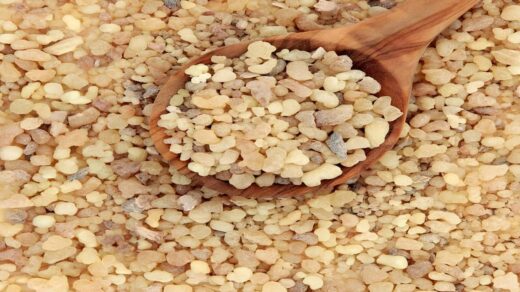Top 23 Essential Herbs for Medicine: With Benefits and Uses
Herbs, plants that have medicinal properties, have been used for centuries to treat various ailments. They offer a natural and often gentle approach to healthcare. Herbal medicine, also known as herbalism or phytotherapy, is based on the use of plants and their extracts to promote health and well-being.
The use of herbs for medicinal purposes dates back to ancient civilizations. Evidence of herbal medicine can be found in the writings of ancient Egyptians, Chinese, Indians, and Greeks. These cultures developed sophisticated systems of herbal medicine, often based on empirical observations and traditional knowledge.
What is Herbal Medicine?
Herbal medicine, also known as herbalism or phytotherapy, is a form of alternative medicine that uses plants and their extracts to treat diseases and promote health. It is based on the belief that plants contain natural compounds that can interact with the body’s systems to improve well-being.
While herbal medicine has a long history, modern scientific research is increasingly validating its effectiveness. Many of the compounds found in herbs have been identified and studied for their potential therapeutic properties. These compounds can act as:
- Antioxidants: They help protect cells from damage caused by free radicals.
- Anti-inflammatory agents: They reduce inflammation, which is associated with many chronic diseases.
- Antimicrobial agents: They fight bacteria, viruses, and fungi.
- Pain relievers: They can help alleviate pain.
- Mood enhancers: They may improve mood and reduce stress.
List of Essential Herbs for Medicine and Wellness
It’s important to note that while many herbs have been shown to be safe and effective, some may interact with medications or have side effects. It’s always advisable to consult with a healthcare professional before starting any new herbal remedy, Below is a list of some herbs.
1. Ashwagandha (Withania somnifera)
Benefits:
- Stress Relief: Ashwagandha is renowned for its adaptogenic properties, helping the body cope with stress.
- Improves Energy Levels: It enhances stamina and reduces fatigue.
- Supports Immune Health: Ashwagandha strengthens the immune system and promotes overall vitality.
How to Use: Ashwagandha can be consumed in powder form mixed with milk or as a supplement in capsules. It’s often used in evening routines to promote restful sleep.
2. Turmeric (Curcuma longa)
Benefits:
- Anti-Inflammatory: Turmeric contains curcumin, which has powerful anti-inflammatory properties.
- Antioxidant: It helps neutralize free radicals and boosts the body’s antioxidant enzymes.
- Digestive Health: Turmeric aids in digestion and supports liver function.
How to Use: Turmeric can be added to foods, such as curries, soups, and smoothies. For therapeutic use, turmeric tea or golden milk is a popular choice.
3. Brahmi (Bacopa monnieri)
Benefits:
- Cognitive Enhancement: Brahmi is known to improve memory and cognitive function.
- Reduces Anxiety: It has calming effects and helps manage anxiety and stress.
- Neuroprotective: Brahmi supports brain health and protects against neurodegenerative diseases.
How to Use: Brahmi is typically consumed as a powder or in capsule form. It can also be taken as a tea to promote mental clarity.
4. Holy Basil (Tulsi, Ocimum sanctum)
Benefits:
- Immune Booster: Holy basil is revered for its ability to boost the immune system.
- Respiratory Health: It supports respiratory function and relieves congestion.
- Adaptogenic: Tulsi helps the body adapt to stress and promotes mental balance.
How to Use: Holy basil leaves can be brewed into a tea or added to food. It is also available in capsule or tincture form.
5. Ginger (Zingiber officinale)
Benefits:
- Digestive Aid: Ginger is excellent for improving digestion and relieving nausea.
- Anti-Inflammatory: It helps reduce inflammation, especially in conditions like arthritis.
- Cold and Flu Remedy: Ginger can alleviate symptoms of colds and flu, including sore throat and congestion.
How to Use: Ginger can be consumed fresh, dried, or powdered. It’s commonly used in teas, juices, and as a spice in cooking.
6. Neem (Azadirachta indica)
Benefits:
- Skin Health: Neem is highly effective in treating skin conditions such as acne, eczema, and psoriasis.
- Blood Purifier: It purifies the blood and supports liver health.
- Antibacterial: Neem has strong antibacterial and antifungal properties.
How to Use: Neem can be applied topically as oil or paste for skin treatments. It can also be taken as a supplement or in tea form for internal benefits.
7. Aloe Vera (Aloe barbadensis miller)
Benefits:
- Skin Soothing: Aloe vera is commonly used to soothe burns, cuts, and skin irritations.
- Digestive Health: It promotes healthy digestion and helps alleviate constipation.
- Immune Support: Aloe vera enhances immune function and detoxifies the body.
How to Use: Aloe vera gel can be applied directly to the skin. Aloe juice or supplements can be consumed for digestive and immune benefits.
8. Licorice Root (Glycyrrhiza glabra)
Benefits:
- Soothes the Throat: Licorice root is commonly used to relieve sore throat and cough.
- Digestive Aid: It supports healthy digestion and helps heal stomach ulcers.
- Adrenal Support: Licorice root helps balance cortisol levels and supports adrenal health.
How to Use: Licorice root can be consumed as a tea or taken in supplement form. It is also available in powder form for use in various remedies.


























